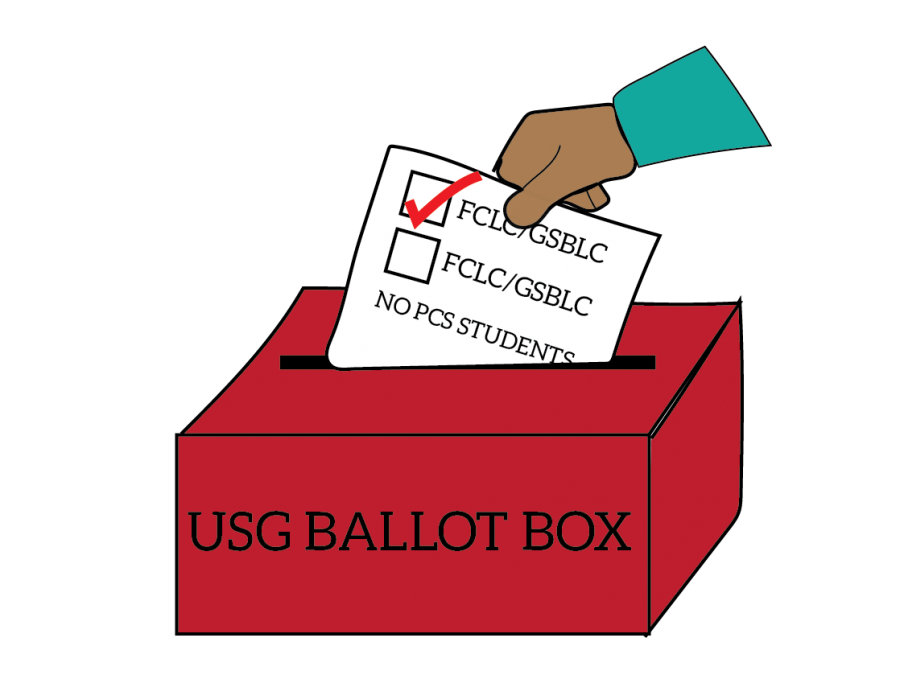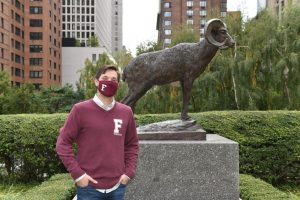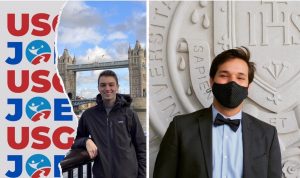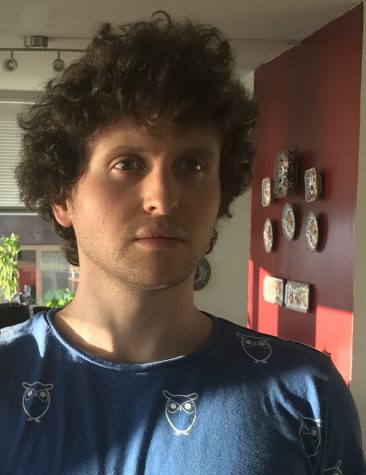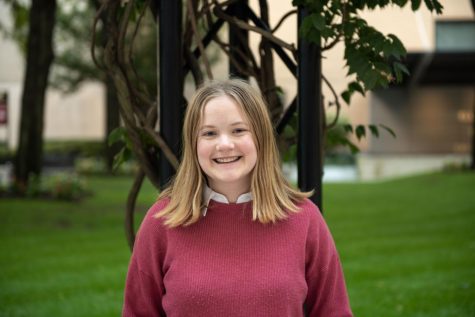Education Without Representation: Why Are PCS Students Unrepresented in Student Government?
October 1, 2020
I’ve often fantasized about being a great man. Academia provides many outlets for this fantasy, but now I rather wish I had kept my aim closer to the ground.
My trouble began when I announced my candidacy for vice president of United Student Government (USG) here at Fordham.
I filled out a Google Doc confirming my intent and was well on my way to the halls of power. Then I was immediately disqualified. No Professional and Continuing Studies (PCS) student, it turns out, is eligible to hold any elected USG position.
Fordham’s School of Professional and Continuing Studies is designed for atypical students who may be older, military veterans, committed to day jobs or nontraditional in some other way. Anthony Davidson, the dean of PCS, writes that PCS is for students “beginning studies at a later point in their lives.”
So why can’t they join student government?
Fordham’s leadership differs from American government in many ways, but converges on a central point: The most powerful figures are unelected. The combined authority of the USG president, vice president and senate cannot approximate the power of a single Fordham dean.
USG members do not send campus-wide emails discussing Title IX, preferred-name policy or Austin Tong’s speech because Fordham’s official (non-student) hierarchy holds the only real power over such decisions.
Bestowing titles like “senator” and “president” on Fordham students does more to cultivate the idea of power than its reality.
However, it’s precisely because Fordham’s deans don’t have personal conversations with every single student that meaningful representation can be important.
Although PCS students can become “general members” of USG, this only affords them a half-vote on matters in which senators enjoy a full vote. This is not as controversial as one might expect, largely because the power of such votes are of questionable influence. As it stands today, USG is not endowed with the authority to enact significant campus-wide changes.
Bestowing titles like “senator” and “president” on Fordham students does more to cultivate the idea of power than its reality.
USG presidential candidate Leighton Magoon, Fordham College at Lincoln Center ’17, wrote in 2015 that he noticed “a disconnect between USG and our fellow students.” He urged students to rediscover USG and get “involved in the conversation” because “that is what United Student Government is here for: to provide that outlet.” A Fordham graduate is armed with the ability to enact change in the real world, but arming USG with the power to change campus requires the organization to stand for something more than “an outlet” for “conversation.”
Traditional Fordham College and Gabelli students pay larger student activity fees which provide greater access to clubs. USG, technically speaking, is a club. Keith Eldredge, dean of students, clarified the matter.
He described the activity fee as a “significant” consideration in prohibiting PCS involvement in student government. “Generalizations never fit every specific situation (but) structures (at Fordham) are set up to meet the least common denominator. PCS hasn’t had the same level of demand for a student government structure (or) for extensive clubs and organizations.”
The desire that arose in the 2000s for “more extensive student government” generally came from “traditional-age students.” PCS students, after all, enjoy a substantially discounted activity fee. Eldredge admitted, however, that this reduced fee still goes “into the same pot” that funds USG. He also observed a change, starting “about four years ago,” where a greater demand emerged from PCS students to participate in campus activities.
Eldredge did say that he would be open to a representative student government for PCS and specified that he would look toward the deans of PCS to support such an endeavor: “It’s a conversation I’ve had with Dean Vernazza and Dean Bach over the years.”
Eldredge stressed the importance of genuine student interest, saying, “We don’t want to create some structure that students don’t want.”
When asked about the importance of student government at Fordham, Eldredge said, “Part of what we try to do at Fordham is have a developmental educational experience that’s beyond just the intellectual knowledge you get in the classroom.”
Although he admits that faculty do a lot of “experiential education,” he said, “part of my job on campus is to focus on the out-of-the-classroom experience for students; teaching folks to engage in their community, take ownership in their community, and to help establish what they’d like their community to be. My experience is that this works better when there’s some kind of structure (and) some kind of organization.”
I couldn’t agree more. The experience of running for elected office is exciting, and there should be no financial calculus that deprives certain Fordham students of the right to participate. But the hard truth is that few, if any, PCS students have demanded change.
PCS students can write for The Observer, they can participate in many campus activities and they can generally access the same quality education as their traditional peers.
However, if PCS students desire representation in student government they have to ask for it. It’s time we demand equal representation in USG so that all students are included.

